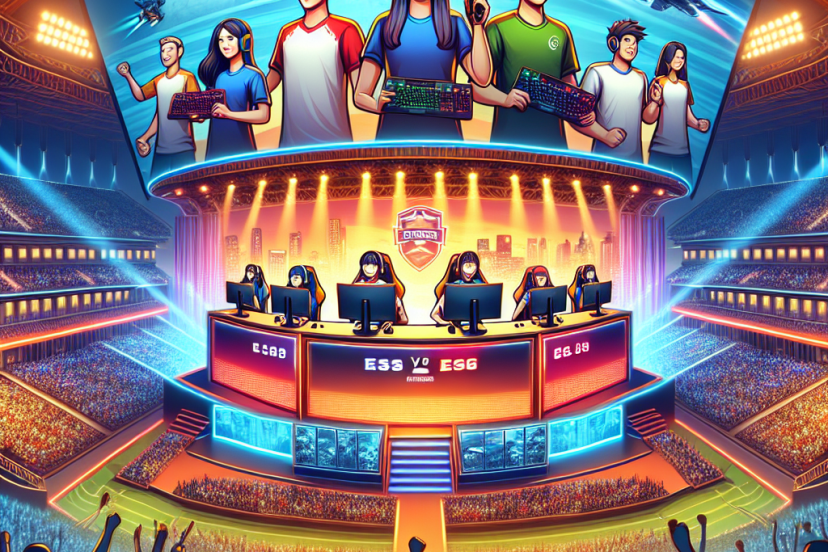Upgrade Your Storage with the Fastest SSDs for Gaming
Upgrade Your Storage with the Fastest SSDs for Gaming
Understanding SSDs: A Brief Overview
Solid State Drives (SSDs) have revolutionized digital storage, particularly for gaming. Unlike traditional Hard Disk Drives (HDDs), which rely on spinning disks to read and write data, SSDs utilize flash memory, allowing for significantly faster data access and transfer speeds. This enhancement leads to shorter load times, smoother gameplay, and an overall improved user experience.
When selecting an SSD for gaming, two key performance metrics come to the forefront: sequential read and write speeds, typically measured in megabytes per second (MB/s). Furthermore, random read and write speeds (IOPS) indicate how well the drive handles numerous simultaneous data requests, which is crucial during intense gaming scenarios.
Forms of SSDs: M.2 vs. 2.5-Inch
SSDs are available in different form factors, mainly M.2 and 2.5-inch SATA. M.2 SSDs connect directly to the motherboard via the PCIe interface, offering faster speeds and a compact design, making them the preferred choice for gamers. In contrast, 2.5-inch SATA SSDs, while still faster than HDDs, operate within the limitations of the SATA interface, capping their speeds significantly compared to NVMe drives.
The Impact of PCIe Generations
The Performance of SSDs also depends on the PCIe (Peripheral Component Interconnect Express) generation they utilize. PCIe 3.0 offers speeds up to 32 Gb/s, while PCIe 4.0 can reach double this capacity. With the arrival of PCIe 5.0, speeds are expected to soar to a jaw-dropping 64 Gb/s, though standard adoption in gaming SSDs is still in its infancy.
Key SSDs for Gaming in 2023
The landscape of gaming SSDs in 2023 features various high-performance models, each catering to different needs and preferences.
1. Samsung 980 PRO
Specifications:
- Type: NVMe M.2
- Capacity: 250GB, 500GB, 1TB, 2TB
- Sequential Read Speed: Up to 7000 MB/s
- Sequential Write Speed: Up to 5000 MB/s
Samsung’s 980 PRO remains a standout option for gamers due to its seamless integration with PCIe 4.0 technology. With impressive read and write speeds, it excels in reducing game load times and data streaming. Additionally, Samsung’s Operation Management software allows users to optimize the SSD’s performance further.
2. Western Digital Black SN850X
Specifications:
- Type: NVMe M.2
- Capacity: 500GB, 1TB, 2TB
- Sequential Read Speed: Up to 7300 MB/s
- Sequential Write Speed: Up to 6000 MB/s
This drive is tailored for gamers who seek a combination of performance and reliability. The WD Black SN850X supports a Gaming Mode that prioritizes performance during intense gaming sessions, ensuring your system remains responsive and maintains high frame rates, especially during heavy loading periods.
3. Kingston Fury Renegade
Specifications:
- Type: NVMe M.2
- Capacity: 500GB, 1TB, 2TB
- Sequential Read Speed: Up to 7300 MB/s
- Sequential Write Speed: Up to 7000 MB/s
The Kingston Fury Renegade SSD is crafted for maximum performance. It boasts remarkable speed alongside a heatsink that helps manage thermals during long gaming sessions. Its versatility in handling both gaming and general computing tasks makes it an advantageous choice.
4. Crucial P5 Plus
Specifications:
- Type: NVMe M.2
- Capacity: 250GB, 500GB, 1TB, 2TB
- Sequential Read Speed: Up to 6600 MB/s
- Sequential Write Speed: Up to 5000 MB/s
Offering great value for performance, the Crucial P5 Plus positions itself as a cost-effective option suitable for gamers on a budget without compromising on speed. Its M.2 design and robust performance specs make it an attractive entry point into NVMe storage.
5. Adata XPG GAMMIX S70
Specifications:
- Type: NVMe M.2
- Capacity: 1TB, 2TB
- Sequential Read Speed: Up to 7400 MB/s
- Sequential Write Speed: Up to 6400 MB/s
Adata’s GAMMIX S70 targets gaming enthusiasts with its aggressive design and impressive thermal management system. With a robust heatsink and superior speed ratings, it is well-suited for intense gaming sessions, ensuring minimal throttling.
The Importance of Thermal Management
High-performance SSDs are susceptible to thermal throttling, which can diminish their speeds under sustained loads. When upgrading your gaming setup, consider models that come with built-in thermal protection and heatsinks. Aftermarket heatsinks are also available to enhance cooling for any SSD, especially if operating in a space-constrained gaming rig or a laptop.
Compatibility Considerations
When upgrading to an SSD, ensure compatibility with your motherboard. Most modern motherboards support M.2 slots, but check whether they utilize PCIe 3.0 or PCIe 4.0. Installing an NVMe SSD in an incompatible slot may lead to reduced performance or, in some cases, no operation at all. Furthermore, ensure that you have adequate space set aside, as some high-capacity M.2 drives can be longer than traditional SSDs.
Storage Size: How Much Do You Need?
The capacity of your SSD should align with your gaming habits. Popular AAA titles can span anywhere from 50GB to over 200GB, so a 1TB SSD may suffice for most gamers. However, those who indulge in multiple heavyweight games or pursue extensive downloadable content might benefit from higher capacities (2TB or more), ensuring ample space without the constant need to manage storage.
The Role of Software in SSD Performance
Many SSD manufacturers provide management software that allows users to monitor the drive’s health and performance, perform firmware updates, and optimize SSD settings. Regularly updating the firmware can help minimize bugs and enhance overall performance. Additionally, using the drive’s designated software can allow for unique features like gaming mode, which boosts performance during high-demand periods.
Conclusion
With advancements in storage technologies, maximizing your gaming experience has never been more accessible. Upgrading to a high-speed SSD not only enhances load times and responsiveness but also significantly contributes to overall performance. By choosing the right model to fit your needs and considering factors such as thermal management and compatibility, you can ensure your gaming rig reaches its full potential. Embrace the speed of SSDs and enjoy a seamless gaming experience like never before.




